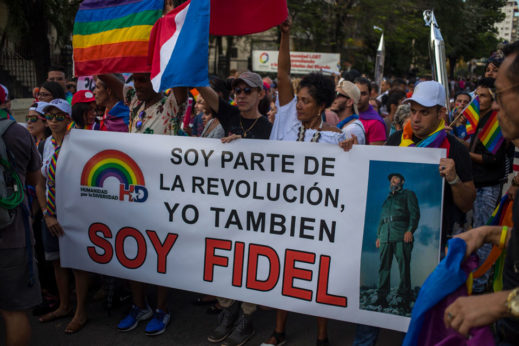
Cuba’s new constitution has been overwhelmingly endorsed, with 87 percent of voters backing it.
Cuba’s National Electoral Commission said on Monday that 7,848,343 people voted in the referendum—90.5 percent of eligible voters. Of these, 6,816,169 voted to approve it, while 706,400 voted against, and 300,000 ballots were spoilt.
The new constitution had been subject to extensive consultation over a period of months, with many amendments being accepted before a final version went to the people. It is a response to some new realities as well as some old problems confronting Cuba’s brand of socialism.
A new generation of political leadership has materialized, as has increasing dependence on foreign investment, new property-ownership patterns, and new forms of private enterprise. Meanwhile, U.S. hostilities and economic blockade persist, economic productivity lags, personal income is low, the debt load increases and costs for importing goods are high.
In the face of these and other challenges, the new constitution preserves the dominant role of public ownership even as it provides a constitutional basis for private property and private business for the first time. However, it still commits the country to “advancing towards a communist society”—the latter inserted because of feedback from the public after having been written as “socialist society” in the initial draft.
Changes from Cuba’s prior constitution involve recognition of the role of private and co-operative businesses; changes to the system of government, including re-introduction of the role of prime minister (so the head of state and head of government are no longer one office, as they have been since 1976) and the institution of two five-year term limits for president; the replacement of provincial assemblies with provincial governors; and judicial changes bolstering citizens’ rights to legal representation, the presumption of innocence, and the right not to be held without trial.
The new charter also forbids discrimination on the basis of sexual orientation or gender identity for the first time, but drafters came under fire after a constitutional right to same-sex marriage was deleted from the original draft following criticism. Evangelical Christians, among others, had called for a vote against on the grounds that the constitution changes the definition of marriage in a way that allows same-sex marriages to be recognized.
Francisco Rodriguez, a member of the Communist Party of Cuba and gay blogger known as “Paquito el de Cuba,” encouraged a “yes” vote, saying the document was an acceptable compromise for now. He said LGBTQ activists will next shift their focus to a campaign for reforming the national legal code to allow for marriage equality.
“This was a side step,” he said. “Now is when it all begins.”
Mariela Castro, daughter of former President Raul Castro and a leader in the LGBTQ equality movement on the island, said the constitution “erases the gender binarism and heterosexuality that previously defined marriage under the 1976 Constitution.”
Like Rodriguez, she encouraged a “yes” vote and then asked activists to “come together to change the legal Family Code to be as progressive as the new constitutional text.”
Marxist professor Harold Cardenas, however, said that fundamental human rights should not be the subject of a public vote. “Equal rights to marriage in Cuba should be a presidential decree, not a referendum that exonerates the state from responsibility and opens the door to conservative homophobia,” he said.
The new document also maintains a constitutional declaration that the Communist Party of Cuba plays the leading political role in Cuban society and that its ideology of “Marxism and Leninism” guides policy.

Cuban President Miguel Diaz-Canel said: “This constitution dignifies and upholds the legacy of Fidel and Marti, and of Raul, and strengthens rights.” He said the voting result represented the continuity of the Cuban Revolution, remarking, “Today is a reaffirmation of our socialist nature.”
As it took place immediately after the U.S.-backed border provocations in Venezuela, Diaz-Canel also characterized the vote on the Cuban Constitution as a rebuff to U.S. imperialism.
“We are experiencing a time of imperialist threats. The intention is to impose a platform of capitalist and neoliberal restoration in Latin America, and the most perverse practices are being resorted to. What happened this Saturday on the border of Colombia and Venezuela is part of that. This aggression is fundamentally directed at the peoples of Latin America, the Bolivarian, the Sandinista, the Cuban revolutions,” he said.
This article combines material from Morning Star, Associated Press, and previous People’s World reporting.












Comments